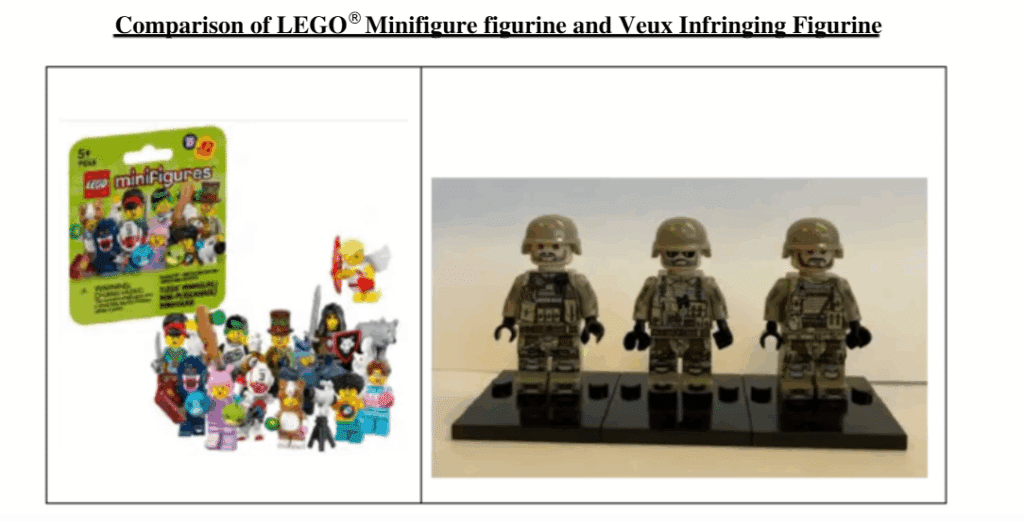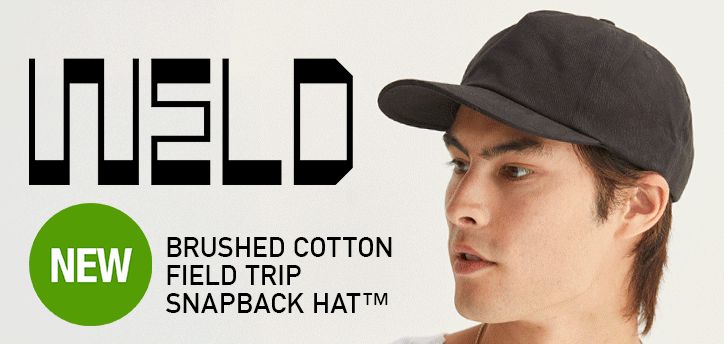CORRECTION: A previous version of this story incorrectly classified Veux Toys as a distributor rather than a toy retailer/wholesale supplier.
- The complaint also noted infringements on other companies’ intellectual property, including M&Ms.
LEGO has secured a legal victory against a California-based toy retailer/wholesale supplier accused of copyright, trademark and patent infringement.
U.S. District Judge Alvin Thompson has granted Lego’s motion for a default judgment against Veux Toys, finding the company “willfully failed” to defend itself against an April 29 complaint and that, regardless, “no meritorious defense exists,” according to reporting from Brian Steele of Law360.
The complaint, which Veux failed to respond to, alleged that the firm infringed upon LEGO’s intellectual property by selling brick toy sets and individual figurines that are “confusingly similar” to the Danish toy giant’s patented products.
- Furthermore, the Veux website, social media accounts, packaging and third-party retail accounts prominently display cartoon images that are also “confusingly similar” to the “overall look and feel” of LEGO’s products, according to the complaint.
As a result of the ruling, Veux is now barred from “manufacturing, selling, offering for sale, displaying or authorizing the sale of” products that include “unauthorized reproductions” of products that infringe upon LEGO’s patents.
It’s important to note that the case, as outlined in LEGO’s complaint, focused on figurine design and the alleged consumer confusion created by Veux’s use of LEGO’s name and branding in product listings. However, standard building blocks, which are offered by multiple suppliers in the promotional products industry, aren’t IP-protected.

Promo Perspective
The LEGO decision is relevant for multiple suppliers in the branded merchandise industry.
For example, Utah-based supplier Business Bricks creates custom LEGO kits for companies to use as promotional products.
“Business Bricks and its affiliated brands operate in compliance with all applicable intellectual property laws,” the firm told PPAI Media. “We don’t sell or distribute any products that infringe on LEGO’s copyrights, trademarks or patents. Our customers can continue to purchase from us with full confidence that our products are sourced, designed and sold within the bounds of the law.”
Meanwhile, Florida-based supplier Joco Innovations manufactures “Infinity Blocks,” which are fully customized construction toy sets compatible with other leading brands.
“We proudly maintain our own distinct brand and product designs, which respect LEGO’s intellectual property,” Joco Innovations told PPAI Media. “Infinity Blocks designs are original, created for our clients and feature prominent Infinity Blocks branding. We respect the creativity and intellectual property of other companies and deliver unique, custom, compliant and compatible products that are fun, engaging and memorable.”
RELATED: Columbia Sportswear Sues Columbia University For Trademark Infringement
Protecting intellectual property is a major concern for the promo industry, which is fueled by creativity and innovation.
- Trademarks, copyrights and patents are designed to distinguish one’s products or services from another’s.
- Those protections enable customers to know what they can expect, ultimately building brand loyalty.
Although the need to protect IP isn’t called into play until someone infringes on it, suppliers, distributors, decorators and business service providers should keep an eye on the market to remain vigilant. For example, suppliers are urged to file a patent application before public disclosure.
“If you wait to file, you may waive your rights or limit the remedies,” said Justin Miller, Esq., a patent attorney with Larson & Larson, at the 2019 PPAI Product Responsibility Summit.
Conversely, you don’t want to infringe upon someone else’s IP when creating or designing products. When accepting an order, distributors should avoid the obvious such as Disney, Star Wars, Marvel characters and the like, as well as famous landmarks, slogans, logos, likenesses of celebrities and photos and art of unknown origin.
RELATED: New Ruling Could Make Design Patents Harder To Obtain
“Fair use laws remain extremely gray, and companies incorporating copyrighted assets into their work should be aware that the case-by-case and context-sensitive evaluation lends itself to much subjective speculation about how a court of law, i.e., a judge or a panel of judges, may apply an objective analysis in determining whether a use of a copyrighted work is fair and thus non-infringing,” wrote Halliburton in a 2023 commentary on the Copyright Act’s ‘fair use’ doctrine.


